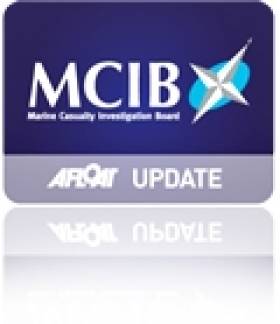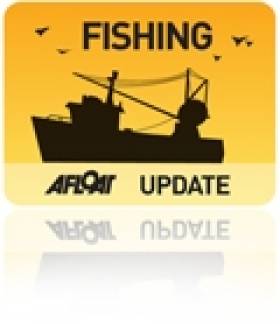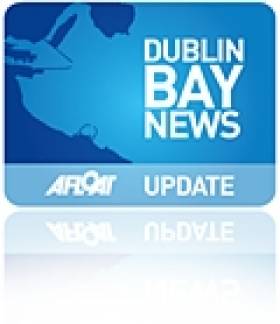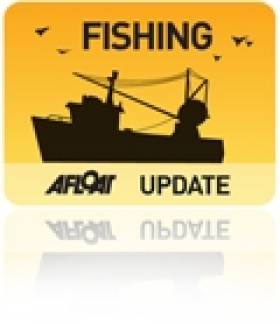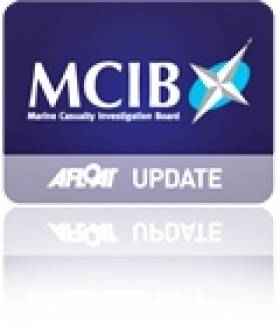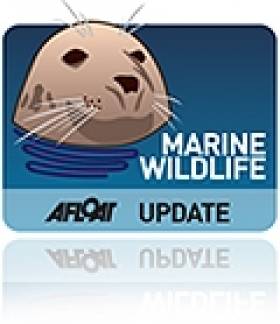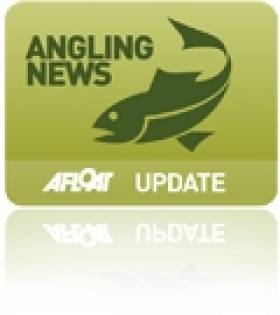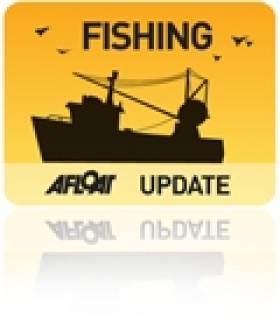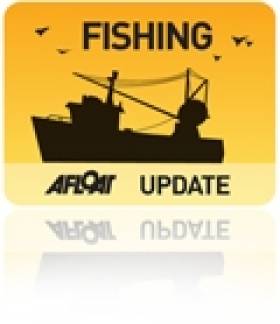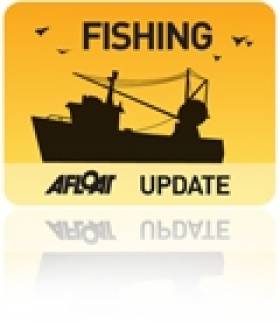Displaying items by tag: Fishing
MCIB Highlights Danger of Fishing Without Safety Gear
The Marine Casualty Investigation Board (MCIB) has called on the Government to continue highlighting the dangers of operating boats without adequate safety equipment, following its report into the death of a Wexford fisherman last year.
Michael O'Connor drowned after going overboard from his small open boat while fishing alone at Cullenstown, Co Wexford in the early hours of 7 September 2010.
The local Irish Coast Guard unit initiated a search when he did not return as expected later in the morning. His body was subsequently located next to his upturned boat around 9am.
It is not known to investigators how O'Connor came to be in the water when the incident occurred. He was found to be wearing a lifejacket, but no flares, VHF radio or other safety equipment were found on board his vessel.
The boat itself was also not a registered fishing vessel, and was unsuitable for carrying the fishing gear O'Connor had been using.
The report stated: "The combination of boat size, darkness, weather conditions, tidal flow, fishing equipment and the absence of safety equipment other than a lifejacket combined to increase the danger and reduce the chance of survival."
The full report is available to download as a PDF from the MCIB website HERE.
Low Cost Device Could 'Revolutionise' Commerical Fishing, Say Backers
A new, hi-tech global tracking device that could revolutionise the way the commercial fishing industry operates is to be officially launched following a series of successful trials across the South West of England.
Succorfish has worked closely with Seafish to design its newest and most advanced vessel monitoring system; the SC2. It has been developed specifically for the fishing industry and will allow vessels to accurately map and monitor their position using dual GPRS/GSM software to within one metre, provides closer access to marine protected areas such as Lyme Bay whilst avoiding hefty fines previously incurred when breached, and improve and increase overall inshore fishing activity.
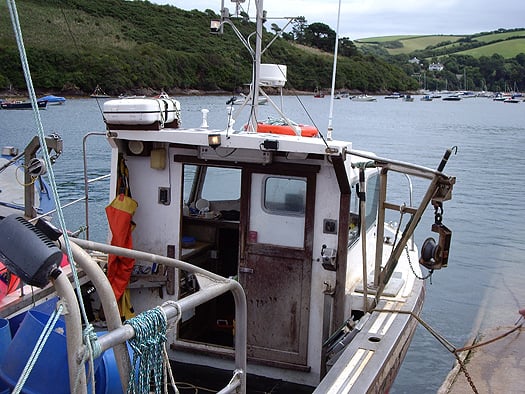
Succorfish's new hi-tech global vessel monitoring system, the SC2, can be seen to the right of the light on the wheel-house
The low cost device complies with current UK fishing laws and uses real time satellite and mobile phone technology, as well as online tracking software, to monitor and record the course and position of vessels via up-to-the-minute reporting. Information is then relayed back to a password protected website where users can view their personal data through a graphical user interface.
And, with new EU legislation being introduced in 2012 that will force all 12m-15m vessels to have monitoring systems with satellite reporting, the SC2 is now being regarded as the cost
effective solution to a worldwide fishing industry problem. Additionally, for vessels 15m and over, the product is also e-log ready and directly interfaces with a specialist, state-of-the-art catch reporting software system via a global satellite network.
Nick Prust, SWIFA Chairman and owner of one of the vessels that took part in the trials commented, “This is the solution that the industry has been looking for and the system will be
a real asset to fisherman regardless of their fishing methods. It will give us continued access to fishing grounds with spatial and temporal restrictions whilst allowing us to co-exist alongside
newly proposed MPA’s.”
George Henricks, Commercial Director of Succorfish added, “We have worked very closely with industry representatives and listened long and hard to all of the stakeholders who have
participated in the inshore VMS trial. All of those parties have a common goal in that they want to see the long-term security of both the marine environment and the livelihoods of the
fishermen. Therefore, by designing and developing a product like the SC2, we can directly support the industry and make huge strides towards achieving its goal.”
The SC2 has been developed in conjunction with Seafish and CEFAS following a 12 months pilot project to monitor the UK’s inshore fishing activity. It has been funded by Defra as part of
its remit to undertake economic and social research in the marine environment and overseen by representatives from the Marine Management Organisation (MMO), Natural England, Devon Sea Fisheries Committee, the South West Inshore Fishermen’s Association and the UK Marine Protected Areas Coalition Group.
Courtown Harbour Rowing Club took second place in a time of 3:3:19 and third place honours went to Stella Maris Rowing Club with a time of 3:16.00. The hosts of the Hobblers Challenge, St. Michaels Rowing Club based out of the Coal Harbour, passed under the high walls of the East Pier Lighthouse and battery some two minutes later in fourth place.
The annual event (for race-route click HERE) was only re-introduced onto the race calendar last year after a break of several years. The skiffs were launched at the Coal Harbour slipway where they headed over to line-up for the starter's gun opposite the Hobbler's Memorial located on the publicly accessible Eastern Breakwater which is between the Stena Line HSS fast-ferry berth and the Dun Laoghaire Marina.
In attendance to greet the start of the race in memorial of the Dublin Bay hobblers was the RNLB Anna Livia of the local RNLI lifeboat station. The bronze memorial depicts a tower of lifejackets in commemoration of three young Dun Laoghaire hobblers who after piloting and unloading the schooner Jealous of Me in Ringsend, failed to return home.
This occupation was carried out by men also from Ringsend, Dalkey and other harbours and it was the first crew to reach a ship and throw a hook on the deck who would win the business of pilotage and unloading in Dublin Port.
Crews would think nothing of rowing out to the Kish Bank on the hope of spotting a ship. If they waited offshore and no passing trade appeared along the East Coast the craft doubled as a bed if it became too late to row home. The craft were much larger and heavier compared to the present day skiff and it is in these oarstrokes that the Hobblers Challenge follows the original race of the hobblers during the 18th and 19th centuries.
It was apt that on the same day of this year's Hobblers Challenge, the 107-year-old ketch Bessie Ellen, a former cargo-carrying vessel that represented one of the last such sail-trading ships operating in the Irish Sea, was making a passage to the east of the Kish Bank.
To read more about the un-manned Kish Lighthouse click this HERE, and for the 150 cargo tons capacity ketch built in 1904 click HERE.
- Dublin Port
- Fishing
- Dun Laoghaire Marina
- Dublin Bay News
- Irish Lights
- Dun Laoghaire Harbour
- Kish Bank
- Ferry news
- Stella Maris Rowing Club
- Kish Lighthouse
- East Coast skiffs
- Dun Laoghaire Harbour and news
- Stena Line HSS Dun Laoghaire
- Hobblers Challenge
- Dublin Bay pilots
- Rowing news
- Coal Harbour Dun Laoghaire
- St. Michaels Rowing Club
- Courtown Rowing Club
- St.Patricks Rowing Club
- Ringsend skiff clubs
Fishing Vessel Detained in Cork
The Irish Times reports that the Naval Service detained a Spanish-registered fishing vessel off the Clare coast in the early hours of Tuesday morning.
The vessel was escorted by the LE Niamh to Castletownbere in Co Cork, where it was handed over to gardaí in relation to an alleged breaching of fishing regulations.
No other information is yet known but Afloat.ie will update as details arise.
Families Disagree with MCIB Report on F/V Jennifer
The Irish Examiner reports that the families of two fisherman who drowned off Malin Head last November disagree with the findings of the official investigation into the tragedy.
Eddie Doherty, 65, and his nephew Robert McLaughlin, 41, died after their small fishing boat F/V Jennifer capsized and sank off Glengad on 1 November last year.
The official report released last week by the Marine Casualty Investigation Board (MCIB) found that a combination of high winds in the area and unstable weight on the boat due to the crab pots it was carrying most likely caused the vessel to list to an angle from which it could not be recovered.
But Eddie Doherty's widow said she disagreed with this conclusion.
"With Eddie’s experience and his regard for safety the load would have been spread evenly over the deck of the boat and therefore this would not have had an adverse affect on the stability of the boat," said Marian Doherty.
The full MCIB report is available to read in full HERE.
Protection Needed for Horse Mussels in Strangford Lough
A new study from Queen's University Belfast has revealed the extent of damage to horse mussel reefs in Strangford Lough, the Bray People reports.
The report highlighted a lack of action on the part of the NI government departments responsible for the lough, which is designated as a Special Conservation Area and a Marine Nature Reserve.
According to BBC News, previous studies in the late 1990s showed that many of the mussels were dead, and urged regulatory action to protect the remainer that did not come to pass until earlier this year, when two non-disturbance zones were declared to reduce pot fishing in the reef areas.
On top of the continued ban on mobile fishing gear, the new study recommends "total protection" in areas of the lough where fishing activity is affecting the recovery of horse mussel reefs, and notes that "signs of natural recovery might be expected within 20 years... provided there is no further disturbance".
Kerry Makes Moves to Promote Angling
A recent series of workshops was hosted in Kerry aimed at training angling guides in order to develop the sport in the Kingdom.
The Kerryman reports that 15 potential guides participated in the six-day programme on the River Laune, led by world champion fly-caster Glenda Powell.
Interested individuals were given an introduction to the world of angling guides, covering topics from fishing methods to health and safety, boat handling and teaching fly-casting.
The scheme will soon be supplemented by an online booking system for permits for anyone interested in game angling in Kerry.
Decision on Castlemaine Fishing 'A Matter of Urgency'
A decision on the reopening of Castlemaine Harbour to wild salmon fishing will be made "as a matter of urgency", says the Department of Communications, Energy and Natural Resources.
The Kerryman reports that the department has confirmed 25 submissions were received during a 30-day consultation after plans were announced to reopen the harbour to commercial fishing in May.
Local fishermen have welcomed the move, though angling and conservation groups have voiced their opposition, with Guy Buxton of the Kerry Anglers' Federation saying that the reopening "could not be justified" on any grounds.
Coveney will Demand Action against Iceland and the Faroe Islands for Excessive Mackerel Fishing
There is a common mackerel fish stock in Irish, Norwegian and European waters. These same fish transit through Icelandic and Faroes waters during their migration from Norway to spawn off the south-west of Ireland. If the mackerel stock is overfished in one area, this will damage the stock and reduce the availability for the Irish fishing industry.
The Minister said that "Iceland, for the last three years and the Faroe Islands for the last two, have been operating unilaterally and their fishing levels ,which will come to over 300,000 tonnes this year, are completely unsustainable and outside of normal internationally recognised management protocols. The result of the Icelandic and Faroes overfishing is that almost 1 million tonnes of Mackerel will be fished this year, almost 50% more than the scientifically advised maximum outtake from the stock."
Minister Coveney said "Let us be clear, if there is not a resolution to this situation, serious damage will be done to the mackerel stock in EU waters resulting in potentially dramatic reduction of quotas to Irish vessels and to the supply of mackerel to Irish fish factories. This outcome is totally unacceptable as EU/Norwegian fishing policy has resulted in gradually building up the mackerel stock, which now faces destruction from irresponsible fishing by Iceland and Faroes. These two countries, outside the EU, are totally ignoring the responsible management of the stock and if left unchecked, the current behaviour will do economic damage with loss of jobs in the north- west and south -west of Ireland."
Numerous attempts by the EU and Norway over the last number of years to bring Iceland and the Faroe islands into a fair and sustainable management framework for mackerel have failed. On the demands for trade sanctions the Minister said "I have put this issue on Tuesday's EU Fisheries Council agenda as I am very concerned at the delay in introducing legislation to implement trade sanctions against these two countries. The time for inaction is over and there is an immediate need, supported by Member States for legislation to be adopted this autumn". He went on to say that "if left unchecked this level of fishing by Iceland and Faroes will have a detrimental impact on the health of the mackerel stock which is, economically, Ireland's most important fishing resource".
The Council will also discuss methods for setting fishing levels for 2012. On the Commission's proposals the Minister said "I want coherent and scientifically informed arrangements put in place to determine 2012 fishing levels and to sustain our fishing industry and coastal communities".
The Minister plans to meet the Scottish and English fisheries Ministers, Richard Lockhead and Richard Benyon bilaterally. These meetings will focus issues of common interest and in particular the mackerel overfishing by Iceland and the Faroes.
Spanish Fisherman Fined for Illegal Fishing Activity
The under-recording of catch is contrary to European Commission Regulations and under EC Regulation, fishermen are required to keep an accurate record in the vessel's logbook of the fish they have onboard so that fisheries scientists can make accurate estimates of the state of the fish stocks and to ensure that the catch limits imposed to protect these fish stocks are respected.
Peter Whelan, Chairman of the SFPA welcomed the outcome of the case and said: "The valuable fish stocks around Ireland need protection from over-exploitation by a certain minority who chose to circumvent the legislation for personal gain and to take unfair commercial advantage over their fellow fishermen. The SFPA, in cooperation with the Naval Service, work hard to detect cases of illegal fishing to ensure that fish continue to make a vital contribution to the Irish economy on a sustainable basis."


























